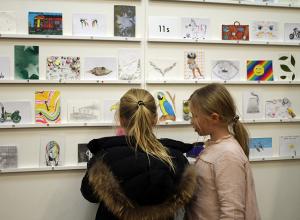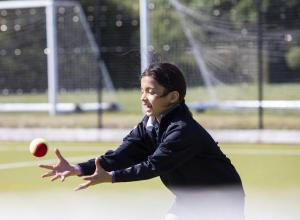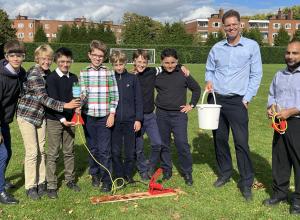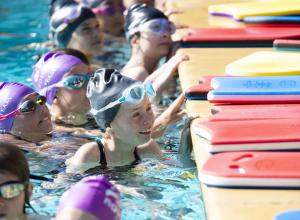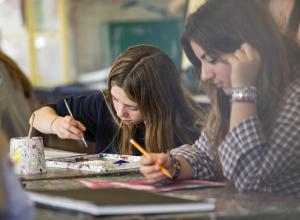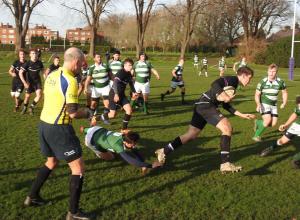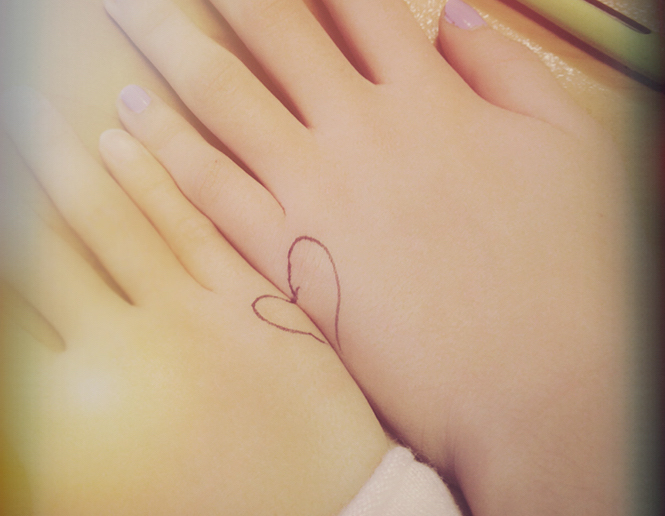
It's sometimes a difficult subject for parents to broach, admits Andy Woodward, but we must grasp the nettle and talk about sex to our children
Hello from Harrodian's sex season! I write fresh from the visit this week of two different RSE (Relationships and Sex Education) presenters addressing our Senior School, and at the start of a programme of RSE-themed PSHE delivered in form times.
These topics are not easy for parents. However enlightened and liberal mum and dad may consider themselves to be, the thought of their own children, until recently unsullied by the world’s sordid obsessions, becoming sexually interested beings cannot help but be traumatic. I, for one, am entirely in denial of the alleged fact that time will continue to pass and that, a decade from now, my own two will be 15 and 13 years old, respectively. That said, a decade from now I will be mere weeks from my fiftieth birthday, so perhaps denial is for the best…
The thought of our own children, until recently unsullied by the world’s sordid obsessions, becoming sexually interested beings cannot help but be traumatic.
In truth however, we prioritise the discussion of relationships and sex in school because it is so important. Whether we like it or not, teenagers are bombarded by media messages and graphic depictions evident across all facets of popular culture. Our pupils carry around with them a device containing the means by which they can access naked images or footage of any description, at any time, generally without grown-ups finding out. And which of us, speaking for the male experience at least, would not at some point have put that facility to use? The arguments for promiscuity and enthusiastic sexual exploration are being strongly made to youngsters, and it seems such pressures are indeed showing themselves through changes in behaviour and expectations within teen relationships. There is a real danger that the exaggerated extremes depicted – of conduct, desire or of physical appearance – get mistaken for the normal stuff of relationships. At very least, we can expect that children will be aware of the pressure to partake in this over-hyped realm of life, albeit to differing degrees. And I’m confident that, for many, such pressure is likely to be felt some time before the legally-important age of 16.
We must ensure that pupils recognise those concepts that the current culture – whether in music videos, Hollywood rom-coms or the seedier edges of the internet – chooses not to communicate
It is essential therefore that we, the grown-ups who care for our teenagers, present them with an alternative perspective. I am not suggesting that this message be any version of ‘Stop everything! Wear sackcloth and a chastity belt until you’re 32!’. Rather we must ensure that pupils recognise those concepts that the current culture, whether in music videos, Hollywood rom-coms or the seedier edges of the internet, chooses not to communicate. My wish-list would include: valuing people for criteria other than looks, establishing a language of respect within relationships, insisting upon the establishment of clear consent beforehand, allowing for the expression of doubt and the right to change one’s mind, promoting the choice of a young person to wait until sure and ready, indeed acknowledging the fact that most of senior-school age are not sexually active, which is utterly normal, healthy and, for many, a relief to hear!
Mistakes in the sexual realm can damage more than most, and that boys and girls can get badly hurt by the bad decisions they or others make.
Some are sexually active, though, and it can be a cause of regret. You may have spotted the flood of articles last week representing a Natsal survey finding that roughly a third of women and a quarter of men apparently feel they lost their virginity at the ‘wrong time’ and that many, in retrospect, ‘were not ready’. Behind some of these statistics will be examples of the type of mess brought into the light through the recent #metoo movement and the various public cases involving consent, or the lack of it. Again, we can’t stop young people making mistakes and learning from them – that’s the business of life. However, it is certainly the case that mistakes in the sexual realm can damage more than most, and that boys and girls can, in a number of ways, get badly hurt by the bad decisions they or others make. We don’t want that for our children. It will be wonderful if they, however many years from now, are able to reminisce happily about their formative intimate relationships, finding those memories linked to the experience of true love and respect.
Let us as teachers and parents be the voice urging young people to respect themselves and others, to think things through, to own their own choices...
So where does all this leave us? Well we know we can’t simply be a voice shouting ‘No!’. It’s tempting at times, but there’s no evidence to show that achieves anything more than killing the conversation and letting the internet instead act as sole provider of advice. That’s not wise. Instead, let us – that’s us the teachers and, more importantly, you the parents – be the voice urging young people to respect themselves and others, to think things through, to own their choices… and, lest we forget, reassuring them that this whole thing can actually, in the right context with the right person at the right time, be brilliant! (But also, that there is more to life than sex. Honest…)
Please feel free to provide feedback to awoodward@harrodian.com

